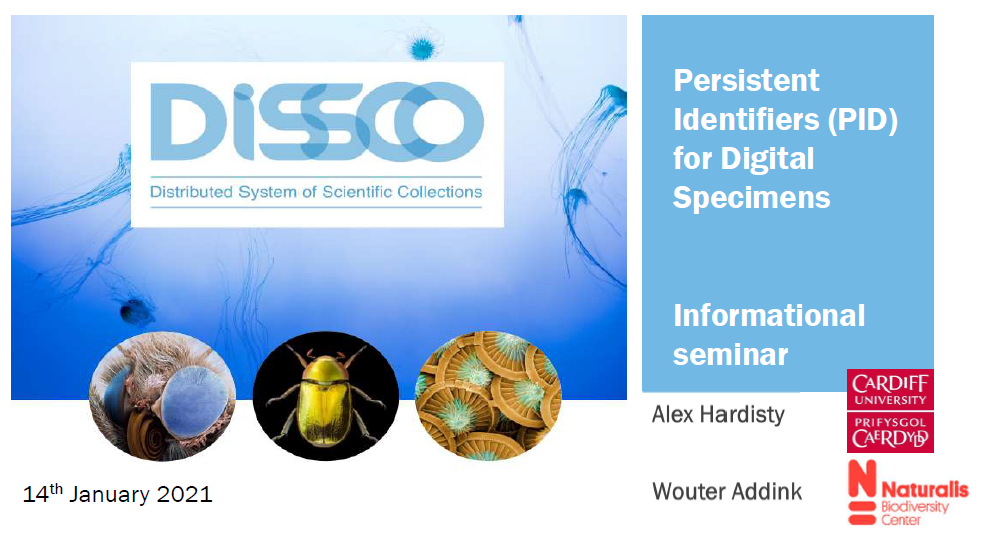
Less than a week ago, we had the pleasure of welcoming more than 65 experts from all over the world to DiSSCo’s Digital Specimens PID Seminar. During the online event, DiSSCo’s technical team presented the outcomes of the Consultation on Digital Specimens Persistent Identifiers (PIDs) for the operation of the DiSSCo RI.
The Consultation
Based on recommendations from the ‘Conceptual Design Blueprint’ for the DiSSCo digitization infrastructure, our technical team developed a comprehensive option analysis document, investigating the ways through which the core data concept of digital specimens (DS) can be unambiguously identified in a global, actionable and persistent manner. The document was then put out for wide consultation within DiSSCo community and relevant advisory bodies, as well as a wider set of international stakeholders.

PIDs for the operation of DiSSCo RI
The following succinct description makes clear the relevance of PIDs:
“PIDs act as a digital doorway that allows us to do more than just find specimens. A wide variety of novel first and third-party services become possible, including for example: harmonizing the arrangement of loans and visits, finding specimens related to one another (…) linking to third-party information, and providing support to Access and Benefit Sharing.” (Hardisty, Alex: “A global Natural Sciences Identifier (NSId) scheme for specimens and collections”)
DiSSCo understand that PIDs and PID services are necessary to support the ambition for Digital/Extended Specimens, virtual collections, online workflows, etc. They will also have a major operational impact for ELViS loans and visits, for annotations, citations, attribution of work and microcredits, and will play a vital role in pursuing common policies and procedures and to transform work practices.
After the results of the consultation were presented, a lively discussion ensued on topics such as the requirements of a PID scheme for DiSSCo, implications for stakeholders, cost model, promotion of local and global adoption or impact on research and data sharing.
The slides from the presentation are available for download here .
The post where DiSSCo presents its PID consultation results appeared first on DiSSCo.
